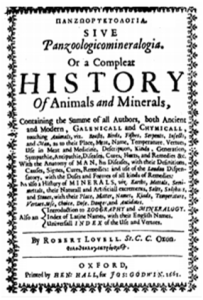 So, the junior hospital doctors’ “contract” has been published, and the secretary of state for health, described in BMA documents as “SoSH”, which is also an obsolete word meaning a dull, heavy sound or a thud, has called it a “draft final version”—a contradiction in terms.
So, the junior hospital doctors’ “contract” has been published, and the secretary of state for health, described in BMA documents as “SoSH”, which is also an obsolete word meaning a dull, heavy sound or a thud, has called it a “draft final version”—a contradiction in terms.
The word “draft” comes from an Indo-European root meaning to draw, DHERAGH, which gives us words such as drag and dredge. A droshky is a low four wheeled open carriage used in Russia, dragged along. As a dray is. The nasalised form of the root gives us drink and drown. A draught, the original spelling of draft, was something that was drawn off—liquid from a barrel or money from an account—and therefore the written order to draw money out, a bank draught or draft. It then came to mean any piece of writing in a preliminary form, a plan, sketch, drawing, or written document.
A zero-grade form of DHERAGH, TRAGH, also meant to draw, pull, or carry, as did the Latin verb trahere, past participle tractum. Tract was originally a process of drawing out, including the drawing out of time or space. A tract therefore came to mean an extent of space, a stretch of land, a region or district, or an expanse of writing. A trait was something drawn out, hence a stroke made with a pen or pencil or a line on the face, and so a characteristic, extended to the mind. Traite in Old French was something that was drawn along, like goods transported by ship, and a tret was a tax allowance of 4 lb in 104 lb on shipped goods that were sold by weight, allowing for possible wastage.
 A trek is a drawn-out journey and a train is drawn behind an engine or drags behind a bride. A related Latin verb tractare, to manage, gives us tractate (a treatise or tract), treat, and treaty. The Italian version of tractare is trattare, to treat, from which we get trattoria, a place where you will be treated to a good meal; but don’t let them drag out the service. The present participle from trahere was trahens, giving us the now obsolete word trahent, anything that draws out. The naturalist Robert Lovell, in his Πανζωορυκτολογια of 1661, “a compleat history of animals and minerals” (picture), wrote of potions that were “used to evacuate humours, that do not resist the trahent medicine”.
A trek is a drawn-out journey and a train is drawn behind an engine or drags behind a bride. A related Latin verb tractare, to manage, gives us tractate (a treatise or tract), treat, and treaty. The Italian version of tractare is trattare, to treat, from which we get trattoria, a place where you will be treated to a good meal; but don’t let them drag out the service. The present participle from trahere was trahens, giving us the now obsolete word trahent, anything that draws out. The naturalist Robert Lovell, in his Πανζωορυκτολογια of 1661, “a compleat history of animals and minerals” (picture), wrote of potions that were “used to evacuate humours, that do not resist the trahent medicine”.
Words formed by adding Latin prefixes to tract, treat, trait, and trahent are shown below.

The prefix “con” in “contract” comes from the Latin word cum, for which the Oxford Latin Dictionary lists 14 separate meanings, including “along with”, “on the side of”, “in company with”, “by means of”, “as a consequence of”, and “indicating the person or thing with whom or which a relationship, business, etc exists”. It is that last meaning that informs the word “contract”. The Indo-European root of cum is KON, and the same root gives the Latin word “contra”, which, among many other things, means “face to face”, “against”, “on the contrary”, “otherwise”, and “conversely”. To encounter someone is to come face to face with them and in country dancing you face your partner.
So, to contract is literally to draw together, and thus to agree on something, and more specifically to enter into a business or legal engagement. The contract is the agreement itself or the written evidence of it. In his 1755 dictionary Samuel Johnson defined both the act and the object: “An act whereby two parties are brought together; a bargain; a compact” and “A writing in which the terms of a bargain are included”. A contrahent is one who is party to a contract. The words imply agreement on both sides, not a unilateral imposition.
Thus, the contract that the SoSH, the Cunctator, intends to impose on the junior doctors, dragging the dispute out as before, is more of a contra-act than a con-tract.
Jeffrey Aronson is a clinical pharmacologist, working in the Centre for Evidence Based Medicine in Oxford’s Nuffield Department of Primary Care Health Sciences. He is also president emeritus of the British Pharmacological Society.
Competing interests: None declared.
